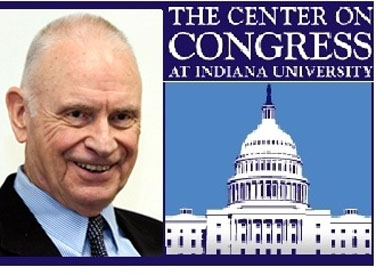
Of all the numbers thrown at us over the course of last year, one stands out for me. I fervently hope we can avoid repeating it this year.
That number is 12. It’s the percentage of Americans in a December Quinnipiac poll who said they trust the government in Washington to do what is right most or all of the time. It’s a depressingly small number – especially compared to the 41 percent who say they “hardly ever” trust the government. On top of that, a few months ago an AP poll found that fewer than a third of Americans trust one another. The poll’s message is clear: our society is in the midst of a crisis in trust.
Trust is essential to our political system and our way of life. The belief that people and institutions will do what they say they will do is the coin of the realm in our society. It is what allows people to work together – in their daily interactions with others and in their communities, legislatures and Congress. Negotiation, compromise, collegiality, and the mechanisms our complex and diverse society depends upon are impossible without trust.
You could argue that we see all around us the results of our trust deficit. Government dysfunction, an economy performing below its potential, public officials’ scandals and misdeeds, trusted institutions’ willingness to skirt the law and standards of good conduct, our social safety net under attack because people mistrust recipients – all of these speak to a society struggling as trust weakens.
Yet here’s the question. Do the polls match your experience? In my case, they do not. Trust is still a big part of my dealings with institutions and individuals, most of whom are good people trying to live a decent life and to be helpful to others. Trust may have weakened, but most of us do not see or experience a corrupt America. A sense of community remains crucially important to make this country safe and secure for ourselves and our children.
Events in recent years have given us plenty of reason to be distrustful. Clearly, healthy skepticism is warranted in the wake of the NSA revelations and other evidence of government and corporate misbehavior. In the end, however, “trust but verify” is still the golden standard. Our ability to function and move forward as a society rests on trust. Think about it.
Lee Hamilton is Director of the Center on Congress at Indiana University. He was a member of the U.S. House of Representatives for 34 years.
Lee H. Hamilton






